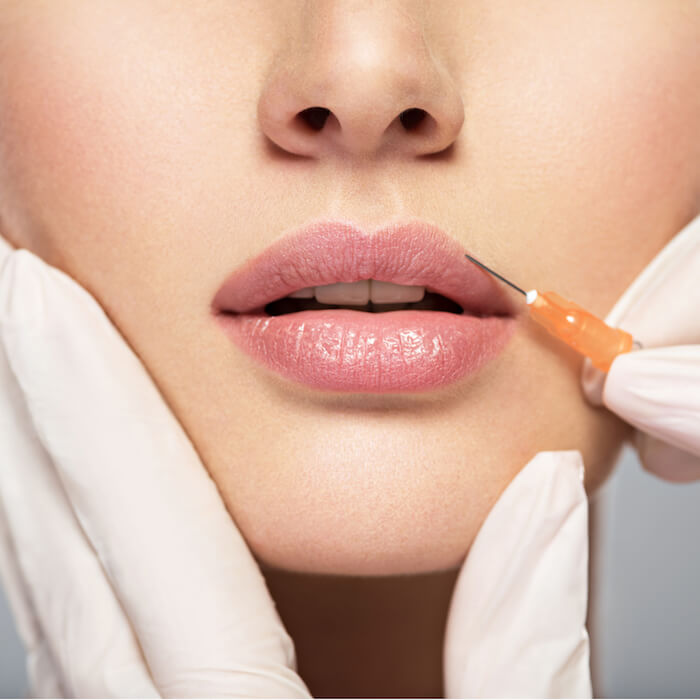Acne is a common skin condition that affects millions of people around the world. While there are many factors that can contribute to acne, including genetics, hormones, and stress, the foods you eat may also play a role in its development and severity. In this blog, Dr Deepak Jakhar and Dr Ishmeet Kaur will discuss the link between diet and acne, and provide tips on what to eat and avoid for clear, healthy skin.
Glycemic Index and Acne
The glycemic index (GI) is a measure of how quickly a food raises blood sugar levels, explains Dr Ishmeet Kaur. Foods with a high GI, such as refined carbohydrates like white bread, pasta, and sugar, can cause spikes in blood sugar levels, leading to inflammation in the body, elaborates Dr. Deepak Jakhar. Inflammation can exacerbate acne by increasing the production of sebum, the oil that clogs pores and causes pimples.
To help prevent acne, try to incorporate more low-GI foods into your diet. These include:
- Whole grains like brown rice, quinoa, and whole-wheat bread
- Fruits like berries, apples, and oranges
- Vegetables like leafy greens, broccoli, and carrots
Dairy and Acne
Some studies suggest that consuming dairy products, particularly milk, may increase the risk of acne, says Dr Ishmeet Kaur. It is thought that hormones and other bioactive compounds found in dairy products may contribute to the development of acne.
If you are prone to acne, try reducing your intake of dairy products and see if it makes a difference. Some alternatives to dairy milk include soy, almond, and oat milk, suggests Dr Deepak Jakhar.
Omega-3 Fatty Acids and Acne
Omega-3 fatty acids are essential fats that have anti-inflammatory properties. Consuming foods rich in omega-3 fatty acids can help reduce inflammation in the body, which may help to prevent acne.
Some good sources of omega-3 fatty acids include:
- Fatty fish like salmon, mackerel, and sardines
- Flaxseeds and chia seeds
- Walnuts and almonds
Zinc and Acne
Zinc is a mineral that plays a role in many bodily functions, including wound healing and immune function. Some studies suggest that zinc may also be beneficial for preventing and treating acne. Foods that are high in zinc include:
- Oysters
- Beef
- Pumpkin seeds
- Chickpeas
Antioxidants and Acne
Antioxidants are compounds that help protect the body from damage caused by free radicals, which can contribute to inflammation and other health issues. Consuming foods that are high in antioxidants can help reduce inflammation in the body and may help prevent acne. Some good sources of antioxidants include:
- Berries like blueberries, raspberries, and strawberries
- Dark leafy greens like spinach and kale
- Nuts like almonds and walnuts
Some more suggestions include:
- Avoid Foods High in Sugar and Refined Carbohydrates: Sugary and processed foods like candy, soda, and white bread can cause spikes in blood sugar levels and increase inflammation in the body, leading to the development of acne.
- Eat More Foods Rich in Vitamins A and C: Vitamins A and C are important for skin health and may help prevent acne. Good sources of vitamin A include sweet potatoes, carrots, and leafy greens, while citrus fruits, berries, and peppers are high in vitamin C.
- Limit Your Intake of Saturated and Trans Fats: Saturated and trans fats can increase inflammation in the body and may contribute to the development of acne. Foods high in these fats include fried foods, processed snacks, and fatty meats.
- Consume Probiotic-Rich Foods: Probiotics are beneficial bacteria that help to improve gut health and may also benefit skin health. Foods like yogurt, kefir, and sauerkraut are rich in probiotics.
- Avoid Foods That Trigger Food Sensitivities: Some people may be sensitive to certain foods, which can trigger inflammation and lead to acne breakouts. Common culprits include gluten, dairy, and soy. If you suspect that you have a food sensitivity, try eliminating the food from your diet for a few weeks to see if it makes a difference in your skin
In conclusion, while there is no single “acne diet” that works for everyone, incorporating more low GI foods, reducing dairy intake, and consuming omega-3 fatty acids, zinc, and antioxidants may help to prevent acne and promote healthy, clear skin. It is also important to stay hydrated and get plenty of sleep and exercise, as these lifestyle factors can also impact skin health. If you are concerned about your acne, you can visit Dermosphere Clinic. It is important to consult with a dermatologist to determine the best course of treatment for your individual needs.
Disclaimer: The information provided on this medical blog is intended for educational and informational purposes only. It is not a substitute for professional medical advice, diagnosis, or treatment.


